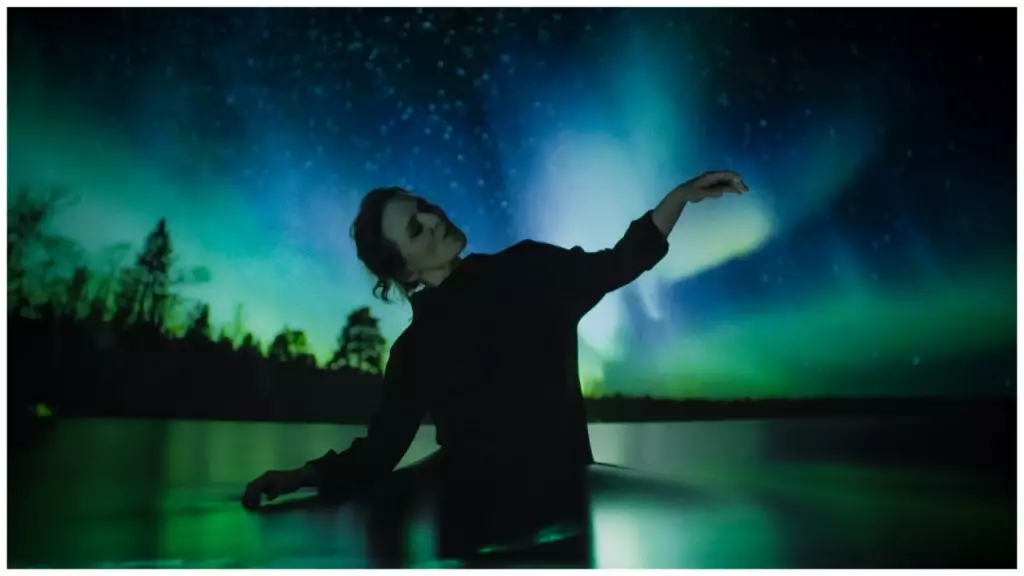Miss Geraldine Flower is a compelling figure of intrigue and creativity whose story is told through an innovative biopic that challenges conventional narrative forms. Drawing heavily from a trove of personal artifacts—including letters, photographs, and telex communications—this film invites audiences into a world where the boundaries between biography and art blur, creating a mesmerizing sonnet to a life lived both publicly and privately. This cinematic piece is an artistic venture by the talented duo Iain Forsyth and Jane Pollard, known for their striking work on Nick Cave’s biopic, “20,000 Days on Earth.” Much like its predecessor, this film employs a method that emphasizes the essence of its subject rather than merely recounting details.
In a society that often values celebrity, the film’s focus on a largely unknown figure such as Miss Geraldine Flower raises questions about the nature of identity and significance. Despite her sophisticated writing and periodic contributions to various media landscapes, it is her daughter, Zoe Flower, who provides the catalyst for this project. This familial connection serves as a poignant reminder of how personal histories often hold more merit than public fame. Miss Flower’s understated existence becomes the canvas on which the film paints a broader commentary on human connection, privacy, and the often-overlooked artistry of personal correspondence.
The narrative unfolds through various artistic lenses, including the poignant readings of letters that the unseen narrator, voiced by Sophie Ellis-Bextor, delivers to the audience. These letters, framed as personal souvenirs, represent a bridge to understanding Miss Flower’s psyche—a mosaic of hopes, dreams, and secrets. The reflections on letter writing tap into a nostalgia for a lost art, suggesting that the written word once flourished as a powerful medium for personal expression. Emilíana Torrini adds depth to this narrative through her musical performance, invigorating the film with ethereal soundscapes that echo the emotions contained within the letters.
In a twist that makes the documentary feel dynamic and fresh, the film utilizes a unique framing device. Caroline Katz portrays Miss Flower in an intimate setting—a timeless bistro devoid of outside distractions—creating an atmosphere conducive to reflection. This deliberate positioning invites viewers to engage fully with both the lyrical and visual aspects of the film. Katz’s interactions with Torrini are electric; they create an engaging dialogue that blurs the lines between past and present, imagination and reality. This interplay allows the viewer to consider how art influences life and vice versa.
Torrini’s songwriting emerges as an emotional undercurrent throughout the film, presenting lyrics that, while initially straightforward, reveal deeper layers upon repeated listening. This complexity mirrors the story itself: a multifaceted exploration of a life steeped in mystery and creativity. The inclusion of whimsical choreography by Kate Coyne enhances this experience, offering a visual metaphor for the lyrical themes—an abstract yet poignant reflection of Miss Flower’s inner world.
Delving into themes of espionage and secrecy, the film crafts an intriguing backdrop that invites speculations regarding the nature of the correspondence it explores. The questions posed—are these love letters or coded messages—reinforce the mysterious aura that surrounds Miss Flower. They demand that viewers engage with both the narrative and its subtext, cultivating a sense of curiosity and wonder. This exploration of secrecy serves not only to engage the audience but also to underline the notion that every connection carries layers of meaning that remain unexplored.
Ultimately, the film refuses to provide simple answers. Instead, it offers a rich tapestry of emotions and ideas that invites viewers to reflect on the complexities of human relationships—how we communicate, how we connect, and how we leave behind fragments of ourselves for future generations to ponder. The enigma of Miss Geraldine Flower, presented through a blend of song, imagery, and intimate prose, emerges as a captivating exploration of love, identity, and the lasting impact of personal narrative. In doing so, it provides a celebration of the subtle power found within every handwritten letter—a charm that remains intoxicating long after the credits roll.


Leave a Reply